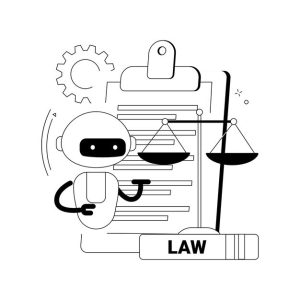Generative AI is changing the way businesses work. From writing documents to creating images and helping with legal research, however, as this development is extremely rapid, it is being accompanied by new legal rules and regulations. Countries across the globe are coming up with legislation to regulate the application of AI. These rules are highly important to be known and prepared on the part of law firms and companies.
In this blog, we will explain what legal regulation of generative AI means, why it matters, and how your firm can get ready. We will keep the language simple so that everyone can understand.
What is Generative AI?
Generative AI is a type of artificial intelligence that creates content. It can write text, make images, create videos, and even generate code. Examples include ChatGPT, MidJourney, and DALL·E. Many law firms use generative AI for:
Drafting contracts
- Summarizing documents
- Doing legal research
- Writing client emails
This saves time and makes work easier. But it also creates new risks. Such risks are bias, wrong information, and privacy. Due to such risks, governments are coming up with new laws.
Why Are Governments Making AI Laws?
AI can be very powerful, but it can also cause harm if not used correctly. Some problems with AI are:
- Privacy Risks: AI tools frequently require large quantities of information. When such information contains personal or confidential data, this information has a chance to violate laws on privacy.
- Bias and Discrimination: The AI is trained on biased data if the AI is biased then it can produce unfair results.
- Wrong Information: AI is prone to errors or telling false information and this may lead to some legal problems.
- Intellectual Property Issues: AI may produce something similar to the creation of another person using his or her intellectual property without his or her permission.
To minimize these issues, most nations are developing regulations of safe and ethical deployment of AI.
Key AI Regulations Around the World
Different countries are taking different steps to control AI. Here are some important examples:
1. European Union – The AI Act
The EU has introduced the AI Act, which is one of the strictest AI laws. It divides AI systems into risk categories:
- High risk (like medical or legal tools)
- Low risk (like chatbots)
High-risk AI will need strict checks, transparency, and safety measures.
2. United States
A single primary AI law has not yet developed in the U.S., but several states possess the rules of their own. The government has also issued AI Bill of Rights guidelines. These focus on fairness, privacy, and security.
3. India
India is preparing new policies for AI. The focus is on responsible use and avoiding harm. While there is no separate AI law yet, data protection laws like the Digital Personal Data Protection Act will apply.
4. Other Countries
- UK: Follows a light regulatory approach but expects transparency.
- China: Has strict rules for AI-generated content and data security.
What Does This Mean for Law Firms?
Law firms use AI for many tasks. But if AI is not used in the right way, firms can face legal trouble. For example:
- If client data is uploaded to an AI tool without consent, it can break privacy laws.
- If AI writes a contract and it has errors, who is responsible? The lawyer or the AI tool?
- If AI creates biased results, it can lead to discrimination cases.
This is why law firms must prepare now.
How Can Law Firms Prepare for AI Regulations?
Here are some simple steps your firm should take:
1. Create an AI Policy
Your firm should have clear rules on how AI tools can be used. For example:
- Never post sensitive information on publicly available AI tools.
- It is recommended to revise the content always generated by the AI before using it with their clients.
- Keep records of AI use for compliance.
2. Check Data Privacy
Verifying that AI complies with the laws of data protection in your country before its use is necessary. In case the tool is keeping or handling customer information, make it follow security.
3. Ensure Transparency
If you work on a client project using AI, tell clients the truth. Some regulations demand accountability when AI is concerned.
4. Train Your Team
Lawyers and staff should know both the benefits and risks of AI. Give them training on:
- How to use AI safely
- How to check AI outputs for errors
- How to follow privacy laws
5. Review Vendor Agreements
If you are using AI tools from other companies, read their terms. Make sure they follow legal requirements and offer proper data security.
6. Stay Updated
AI laws are changing fast. Assign someone in your firm to track new rules. You can also subscribe to legal updates or join professional groups.
Risks of Ignoring AI Regulations
If your firm does not follow AI rules, it can face:
- Fines and Penalties: Some laws like the EU AI Act have heavy fines for violations.
- Loss of Clients: Clients expect law firms to be responsible and compliant.
- Reputation Damage: Misuse of AI can harm your firm’s image.
- Legal Liability: If AI gives wrong advice, the firm may be held responsible.
The Future of AI Regulation
AI regulation is still new, but it will grow quickly. We can expect:
- Stronger privacy rules
- Clear liability for AI mistakes
- Certification for high-risk AI tools
- Global standards for ethical AI use
Law firms that prepare early will have an advantage. They will be trusted by clients and avoid legal trouble.
Final Thoughts
Generative AI can be an effective instrument, and at the same time, it creates new obligations. Regulations and legislations are emerging to make AI something that is safe and fair. For law firms, the message is clear: Start preparing now.
- Make an AI policy
- Train your team
- Obey data privacy regulations
- One should be observant of regulations
In this way, your company will be able to apply AI without fear of falling behind.










